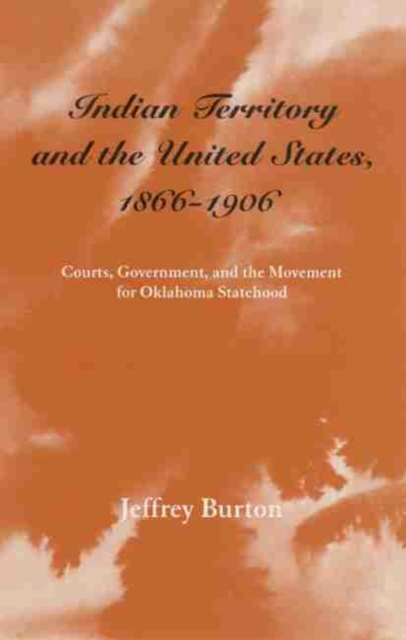
Indian Territory and the United States, 1866-1906 : Courts, Government, and the Movement for Oklahoma Statehood Paperback / softback
by Jeffrey Burton
Paperback / softback
Description
This innovative reappraisal of federal courts in Indian Territory shows how the United States Congress used judicial reform to suppress the Five Tribes' governments and clear the way for Oklahoma statehood.
Historians Jeffrey Burton traces the changing relationship between the federal government and the distinctive institutions of the Indian republics, from the post-Civil War Reconstruction treaties to the Enabling Act that carried Oklahoma to the threshold of statehood.Although this is not a partisan statement for or against tribal sovereignty, Burton demonstrates how judicial reform, by extending the authority of the United States in Indian Territory, undermined the governments of the five republics until abolition of the tribal courts spelled the end of self-rule.
Marshaling a great array of historical material from federal and tribal archives, contemporary newspapers, and other sources, Burton penetrates the jurisdictional fog that descended on Indian Territory during the 1890s, when an influx of settlers and a mounting backlog of citizenship cases and other civil disputes demanded a coherent court system.
Most fascinating is his analysis of the term of Isaac C.
Parker-which affords a deeper understanding of the Western District of Arkansas without the sensationalism usually accompanying accounts of ""the hanging judge.""
Information
-
Out of Stock - We are unable to provide an estimated availability date for this product
- Format:Paperback / softback
- Pages:336 pages, 6 maps
- Publisher:University of Oklahoma Press
- Publication Date:30/09/1997
- Category:
- ISBN:9780806129181
Information
-
Out of Stock - We are unable to provide an estimated availability date for this product
- Format:Paperback / softback
- Pages:336 pages, 6 maps
- Publisher:University of Oklahoma Press
- Publication Date:30/09/1997
- Category:
- ISBN:9780806129181






